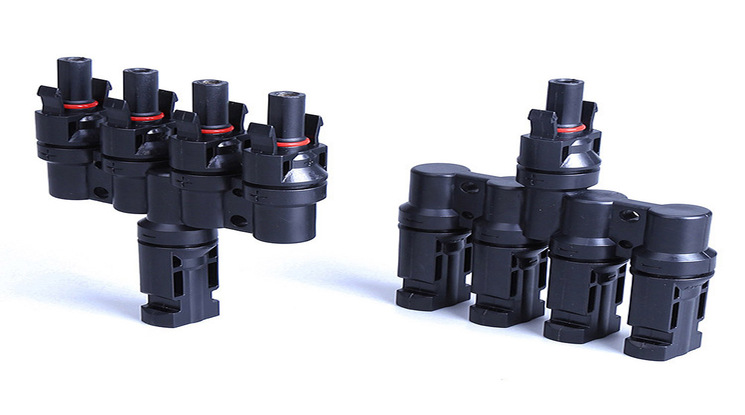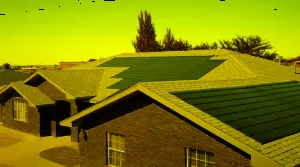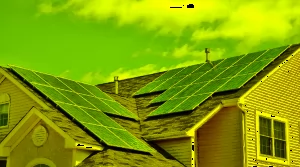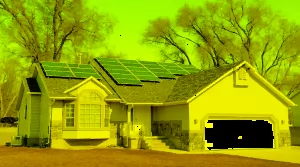Solar energy has become an increasingly popular choice for homeowners and businesses looking to reduce their carbon footprint and lower energy costs. When setting up a solar panel system, one crucial aspect that often goes overlooked is the solar panel connectors. These connectors play a vital role in ensuring your solar panels generate power efficiently and safely. In this complete guide, we’ll demystify solar panel connectors in simple terms, helping you make informed decisions when it comes to your solar installation.
What Are Solar Panel Connectors?
Solar panel connectors are the components that link your solar panels together and connect them to the rest of your solar power system. They facilitate the flow of electricity generated by the solar panels, ensuring it reaches the inverter and ultimately powers your home or business.
Types of Solar Panel Connectors
There are two primary types of solar panel connectors:
MC4 Connectors:
- MC4 connectors are the most common type used in solar installations.
- They are designed to be weatherproof and reliable in various environmental conditions.
- MC4 connectors are easy to install and provide a secure connection.
- They come in two parts, one for the positive and one for the negative lead of the solar panels, ensuring proper polarity.
Amphenol Connectors:
- Amphenol connectors are less common but offer a robust and durable connection.
- They are known for their ability to handle high currents and voltages.
- Amphenol connectors are typically used in larger commercial or industrial solar installations.
Choosing the Right Connector
When selecting solar panel connectors for your system, several factors come into play:
Compatibility: Ensure that the connectors you choose are compatible with your solar panels and the rest of your system components. MC4 connectors are widely compatible and suitable for most residential installations.
Durability: Consider the environmental conditions your solar panels will be exposed to. If you live in an area with extreme weather, it’s crucial to select connectors that are weatherproof and can withstand the elements.
Current Rating: The current rating of the connectors should match the current generated by your solar panels. Exceeding the current rating can lead to overheating and reduced efficiency.
Ease of Installation: If you’re a DIY enthusiast, you’ll want connectors that are easy to install. MC4 connectors are often preferred for their user-friendly design.
Cost: While it’s essential to invest in high-quality connectors, consider your budget. MC4 connectors are cost-effective and reliable, making them a popular choice for residential installations.
Connecting Solar Panels
Now that you’ve selected the appropriate connectors, let’s discuss how to connect your solar panels effectively:
Lay Out Your Panels: Before connecting anything, lay out your solar panels in the desired configuration. Make sure they receive adequate sunlight throughout the day.
Prepare the Wires: Strip the ends of the wires attached to your solar panels, exposing the conductive copper. This will allow you to connect them to the connectors securely.
Connect the MC4 Connectors:
- Insert the stripped wire ends into the male and female parts of the MC4 connectors. Ensure the positive wire goes into the positive connector and the negative wire into the negative connector.
- Once inserted, push the connectors together until you hear a click, indicating a secure connection.
Secure the Panels: Mount your solar panels in their designated locations, making sure they are securely fastened and positioned optimally for sunlight exposure.
Connect to the Inverter: Use the appropriate connectors to link the wires from your solar panels to the inverter. The inverter is responsible for converting the DC power from the panels into AC power for use in your home.
Grounding: Properly ground your solar panel system as per local electrical codes. Grounding ensures safety and helps protect your system from lightning strikes.
Maintaining Your Solar Panel Connectors
Once installing solar panel in Virginia Beach and connectors are in place and your system is up and running, regular maintenance is essential to maximize efficiency and lifespan:
Visual Inspections: Periodically check your connectors for signs of wear, damage, or loose connections. Look for corrosion or oxidation, which can affect performance.
Cleaning: Keep your solar panels clean to ensure they receive maximum sunlight. Clean panels can generate more electricity. Be gentle when cleaning to avoid damaging the connectors.
Annual Checkups: Consider scheduling annual inspections by a professional to ensure your entire solar system, including the connectors, is in good working order.
Conclusion
Solar panel connectors are a vital part of any solar power system, and understanding how they work and how to choose and install them correctly is crucial. By following the guidelines in this complete guide, you can harness the full potential of your solar panels, reduce your energy bills, and contribute to a greener, more sustainable future. Whether you opt for MC4 connectors for a residential setup or Amphenol connectors for a larger installation, making informed decisions about your solar panel connectors is a step toward a brighter, more energy-efficient tomorrow.




